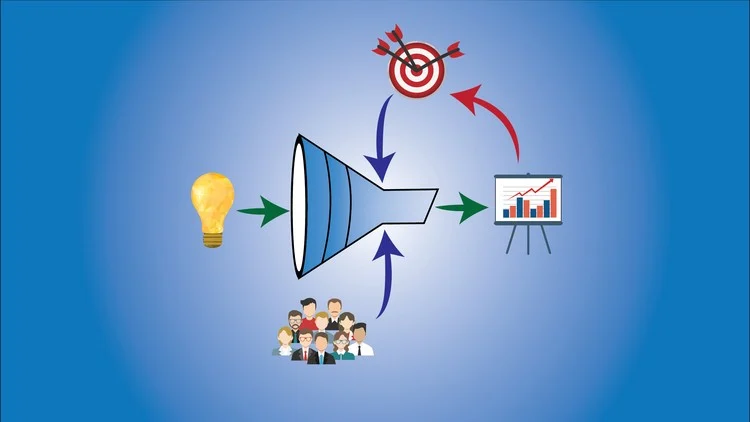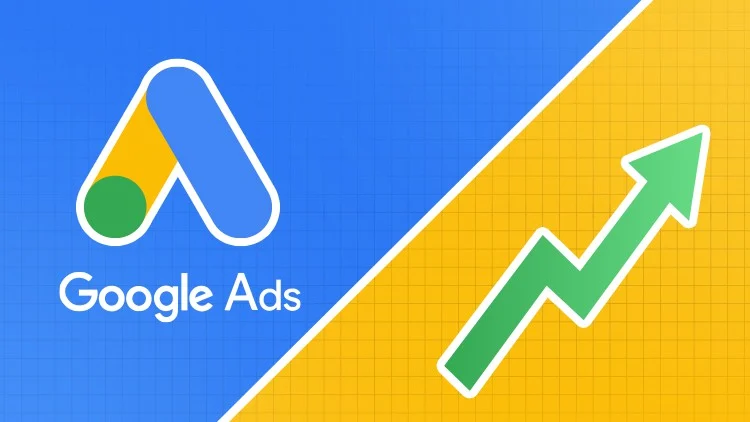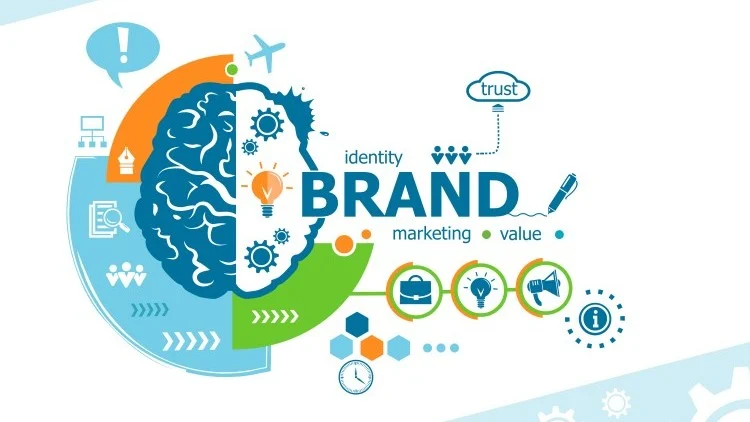Description
Content marketing is an essential tool for small businesses looking to attract and retain customers. This course will guide you through the process of creating valuable, relevant content that speaks to your target audience. You’ll learn how to develop a content strategy, choose the right platforms, and measure the effectiveness of your content efforts. The course covers various types of content, including blog posts, videos, and social media content, and how to optimize them for search engines (SEO). By the end, you’ll be equipped with the knowledge to create and implement a content marketing plan that drives traffic, engagement, and sales for your small business.
What you'll learn
What You’ll Learn:
By the end of this course, you will have a strong understanding of how content marketing can help your small business attract, engage, and retain customers. You’ll gain practical skills to create a content strategy, produce high-quality content, and use content to drive traffic and sales. Key learning outcomes include:
- Introduction to Content Marketing for Small Businesses:
- Understand what content marketing is and how it differs from traditional marketing.
- Learn why content marketing is essential for small businesses to build brand awareness and loyalty.
- Explore the benefits of content marketing, including increased website traffic, lead generation, and customer retention.
- Creating a Content Marketing Strategy:
- Learn how to develop a content marketing strategy tailored to your small business goals.
- Identify your target audience and understand their needs, pain points, and preferences.
- Set clear objectives for your content marketing campaigns (brand awareness, lead generation, sales, etc.).
- Explore the content creation process and plan for long-term success.
- Content Planning and Creation:
- Learn how to brainstorm and create engaging content ideas that resonate with your audience.
- Explore different content types: blog posts, videos, infographics, podcasts, and social media posts.
- Understand how to write compelling blog posts, create engaging video content, and design shareable social media content.
- Learn how to produce content on a budget while maintaining quality.
- Content Distribution and Promotion:
- Discover how to effectively distribute and promote your content to maximize reach and engagement.
- Learn about different channels for content distribution, including social media, email newsletters, and third-party platforms.
- Explore paid promotion strategies to amplify your content (e.g., Facebook ads, Google Ads).
- Understand SEO basics for optimizing content and increasing organic traffic.
- Measuring Content Marketing Success:
- Learn how to track and analyze the performance of your content marketing campaigns.
- Understand key performance indicators (KPIs) like website traffic, engagement, leads, and conversions.
- Learn how to use tools like Google Analytics and social media insights to measure success.
- Understand how to adjust and optimize your content strategy based on performance data.
- Content Repurposing and Scaling:
- Learn how to repurpose content across different formats to maximize its value (e.g., turning a blog post into a video or podcast).
- Explore ways to scale your content marketing efforts over time, even with a limited budget.
- Discover tools and systems that can help streamline content creation and distribution.
- Building a Content Marketing Team (Optional, for growth):
- Understand when and how to expand your content marketing efforts by building a team.
- Learn how to hire freelance writers, video creators, or social media managers for small businesses.
- Explore strategies for collaborating with influencers or guest bloggers to amplify your content reach.
Syllabus
Course Syllabus:
Module 1: Introduction to Content Marketing for Small Businesses
- What is content marketing and why does it matter for small businesses?
- The difference between content marketing and traditional advertising
- Benefits of content marketing: Building trust, loyalty, and brand awareness
- Examples of successful content marketing campaigns by small businesses
Module 2: Developing Your Content Marketing Strategy
- How to create a content marketing plan for your small business
- Identifying and understanding your target audience
- Setting clear, measurable goals for content marketing (brand awareness, lead generation, etc.)
- Crafting a unique value proposition (UVP) for your content
- The role of storytelling in content marketing
Module 3: Content Planning and Idea Generation
- How to brainstorm content ideas that align with your audience’s interests
- Planning a content calendar: Frequency, timing, and consistency
- Understanding the different types of content: Blogs, social media, videos, infographics, and more
- Best practices for content creation on a budget: Tools, templates, and resources
- How to write compelling blog posts and create shareable content
Module 4: Content Creation and Production
- Writing engaging blog posts that drive traffic and rank on search engines
- Creating visual content (graphics, infographics, videos, and more) that resonates with your audience
- Introduction to video marketing: How to produce and promote business videos
- How to create shareable social media content (posts, stories, reels, etc.)
- DIY content creation tools for small businesses (Canva, Adobe Spark, etc.)
- Tips for shooting your own videos with a smartphone or budget equipment
Module 5: Content Distribution and Promotion
- Introduction to content distribution channels: Social media, email newsletters, your website, and more
- How to build and grow an email list for content promotion
- Promoting your content on social media (organic and paid strategies)
- Using paid advertising to amplify your content (e.g., Facebook Ads, Google Ads)
- How to leverage partnerships, collaborations, and influencer marketing for content distribution
- Understanding the basics of SEO for content marketing: Keywords, on-page SEO, and link building
Module 6: Measuring and Analyzing Content Marketing Success
- Key metrics to track: Website traffic, engagement, social shares, conversions, etc.
- How to use Google Analytics to measure content performance
- How to track and measure engagement on social media platforms (Facebook Insights, Twitter Analytics, etc.)
- How to measure ROI for your content marketing efforts
- Adjusting your strategy based on data: What to do if your content isn’t performing as expected
Module 7: Content Repurposing and Scaling Your Efforts
- What is content repurposing and why is it important?
- How to repurpose content (e.g., turning blog posts into videos or infographics)
- Scaling your content marketing strategy on a small budget
- Tools to automate and streamline content creation and distribution
- Outsourcing content creation: When to hire freelancers or agencies
Module 8: Best Practices and Ongoing Optimization
- Content marketing mistakes to avoid (over-promotion, lack of consistency, etc.)
- How to keep your content fresh and aligned with your audience’s changing needs
- Tips for improving your content marketing strategy over time
- How to use customer feedback to inform your content creation
- The importance of staying updated with trends in content marketing
Module 9: Case Studies and Real-World Examples
- Analyzing successful content marketing campaigns by small businesses
- Learning from failures: Common challenges and how to overcome them
- How to adapt your content marketing approach based on industry-specific needs
Module 10: Conclusion and Next Steps
- Reviewing key takeaways from the course
- Actionable next steps for implementing your content marketing strategy
- How to stay motivated and consistent with content marketing
- Resources for continuing education and learning about content marketing
Course Delivery and Format:
- Duration: 4-6 weeks (self-paced or instructor-led)
- Format: Video lectures, practical assignments, quizzes, case studies, and discussion forums
- Assignments: Hands-on content creation (e.g., blog posts, social media content, videos) and developing a content marketing strategy
- Final Project: Develop and present a content marketing plan for your small business, including a content calendar, promotional strategy, and metrics for success.
Prerequisites:
No prior experience required. This course is designed for small business owners, entrepreneurs, and marketing beginners looking to leverage content marketing for their business.
Tools and Resources:
- Access to content creation tools like Canva, Google Analytics, and social media scheduling tools (e.g., Buffer, Hootsuite)
- Templates for creating a content calendar, blog post ideas, and promotional plans
- Additional resources, including blogs, podcasts, and industry websites for ongoing learning






Tasiu –
“This Content Marketing for Small Businesses course was a game-changer. The easy-to-follow modules and actionable tips immediately empowered me to develop and implement a content strategy that resonated with my target audience. The course’s focus on audience engagement and storytelling has transformed my content into compelling pieces that drive traffic, generate leads, and establish my brand as a thought leader in my industry.”
Isiyaku –
“This ‘Content Marketing for Small Businesses’ course was an invaluable investment for our company. The in-depth modules and expert guidance provided a comprehensive understanding of content marketing principles and strategies. We learned how to create engaging content that resonated with our target audience, boosting our website traffic and lead generation. The hands-on exercises and real-time examples made the learning process interactive and practical, enabling us to implement effective content marketing campaigns for our small business.”
Ayodele –
“I highly recommend this ‘Content Marketing for Small Businesses’ course. It provided me with a comprehensive understanding of content marketing strategies, including keyword research, SEO optimization, and social media engagement. The course was well-paced, with clear and concise explanations. The instructor’s industry expertise was evident, and their guidance helped me develop a solid content marketing plan for my small business. I have already seen a significant improvement in my online visibility and lead generation.”